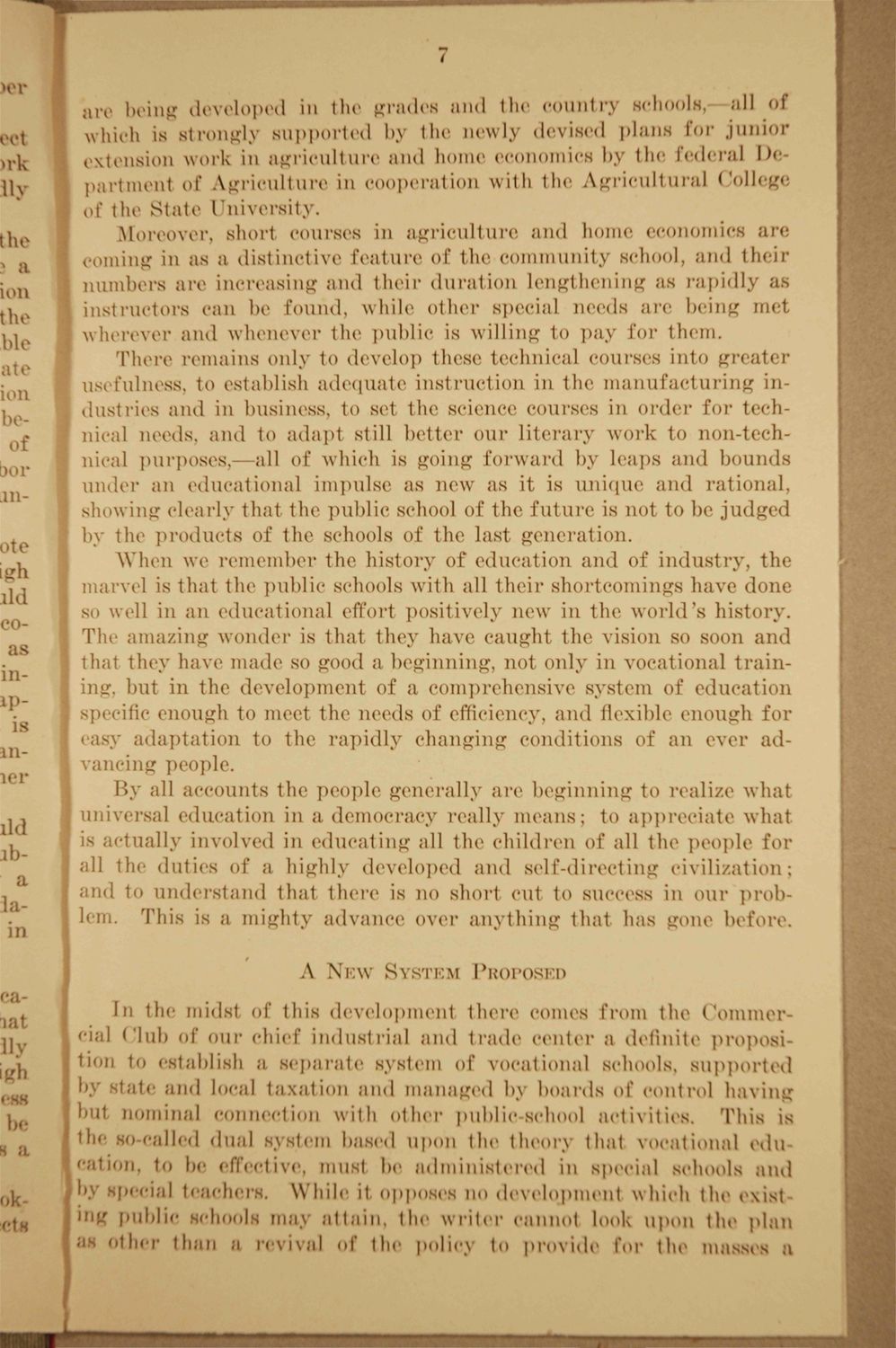Caption: Booklet - What is Involved in a Vocational Education (Davenport) (1915)
This is a reduced-resolution page image for fast online browsing.

EXTRACTED TEXT FROM PAGE:
7 are being developed in the grades and the country schools, all of which is Btrongly supported by the newly devised plans for junioi extension work in agriculture and home economics by the federal Department of Agriculture in cooperation with the Agricultural College of the state University. Moreover, short courses in agriculture and home economics are coining in as a distinctive feature of the community school, and their numbers are increasing and their duration lengthening as rapidly as instructors can be found, while other special needs arc being met wherever and whenever the public is willing to pay for them. There remains only to develop these technical courses into greatei usefulness, to establish adequate instruction in the manufacturing industries and in business, to set the science courses in order for technical needs, and to adapt still better our literary work to non-technical purposes,—all of which is going forward by leaps and bounds under an educational impulse as new as it is unique and rational, showing clearly that the public school of the future is not to be judged by the products of the schools of the last generation. When we remember the history of education and of industry, the marvel is that the public schools with all their shortcomings have done so well in an educational effort positively new in the world's history. The amazing wonder is that they have caught the vision so soon and that they have made so good a beginning, not only in vocational training, but in the development of a comprehensive system of education specific enough to meet the needs of efficiency, and flexible enough for easy adaptation to the rapidly changing conditions of an ever advancing people. By all accounts the people generally are beginning to realize what universal education in a democracy really means; to appreciate what is actually involved in educating all the children of all the people for ;ill the duties of a highly developed and self-directing civilization; and t" understand that there is no short cut to success in our problem. This is a mighty advance over anything that has gone before, A \i:w SYSTEM PKOPOSKD In the midst of this development there comes from the Commercial Club of our chief industrial and trade center a definite proposition to establish a separate system of vocational schools, supported b\ state and local taxation and managed by boards o( control having but nominal connection with other public school activities. This is the so called dual system based upon the theory that vocational edu cation, to be effective, must be administered in special schools and by special teachers. While it opposes no development which the exist ing public schools may attain, the writer cannot look upon the plan other than a revival of the policy to provide (ov the masses a
|